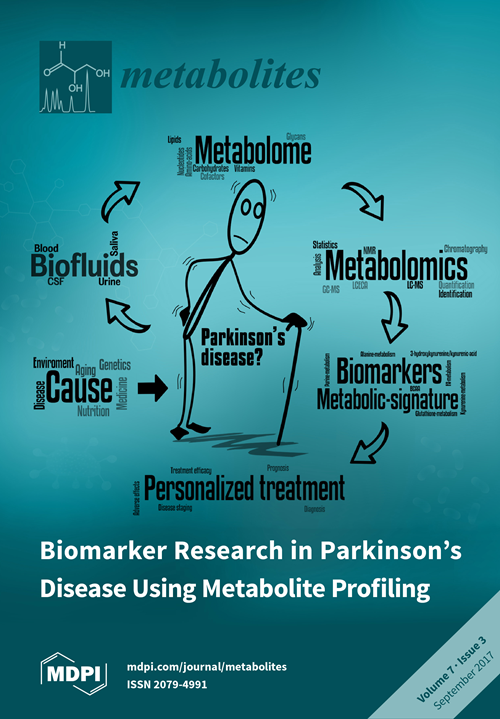Metabolites are the end products of cellular biochemical processes, and their abundance is increasingly being considered as the ultimate response of biological systems to genetic, nutritional or environmental changes. By analogy to the terms ‘genome’, ‘transcriptome’ and ‘proteome’, the set of metabolites present in a biological system comprise its ‘metabolome’.
The use of isotope-labelled tracers can complement such data sets and allow visualization of the dynamics of metabolic processes. As tracers are metabolized within tissues and cells, labelled isotopes become enriched in various metabolites, and this incorporation is a function of label flux into and out of the metabolite pools. Thus, temporal isotopic labelling patterns can provide information on the ‘fluxome’ within tissues and cells.
The advent of new mass spectrometry-based technologies has therefore provided us with the ability to globally assess changes in metabolite levels and biochemical fluxes on a broad scale, providing a global perspective about how cells and organisms respond and adapt to e.g. genetic, environmental and nutritional changes and therefore can be used to define cellular pathways, networks and disease mechanisms.

Relevant publications
Changes in kynurenine pathway metabolism in Parkinson patients with L-DOPA-induced dyskinesia
Havelund, J. F., Andersen, A. D., Binzer, M., Blaabjerg, M., Stenager, E., Færgeman, N. J., and Jan Bert Gramsbergen (2017)
J. Neurochem 142(5) 756-766
Carnitine acetyltransferase: a new player in skeletal muscle insulin resistance?
Berg, S. B., Beck-Nielsen, H., Færgeman, N. J.* and Gaster, M. (2017)
Biochemistry and Biophysics Reports 9, 47-50
The heterozygous N291S mutation in the lipoprotein lipase gene impairs whole body insulin sensitivity and affects a distinct set of plasma metabolites in humans
Berg, S. M., Havelund, J., Hasler-Sheertal, H., Kruse, V., Pedersen, A. J. T., Hansen, A., Beck-Nielsen, H., Højlund, K. and Færgeman, N. J. (2017)
J. Clin. Lipidology 11(2) 515-523
Biomarker Research in Parkinson's Disease Using Metabolite Profiling
Havelund, J. F., Heegaard, N. H. H., Færgeman, N. J. K. and Gramsbergen, J. B. (2017)
Metabolites 11 7(3)
LC-MS Analysis of central Lipid Species in Skeletal Muscle Cells and Tissue
Moreno-Torres, M., Havelund, J. and Færgeman, N. J. (2018)
Methods in Molecular Biology vol 1889 - Myogenesis (213-228)
In Vivo Microdialysis of Endogenous and 13C-labeled TCA Metabolites in Rat Brain: Reversible and Persistent Effects of Mitochondrial Inhibition and Transient Cerebral Ischemia
Havelund, J. Nygaard, K., Nielsen, T., Nordström, C. H., Poulsen, F. R., Færgeman, N. J., Forsse, A., Gramsbergen, J. B. (2019)
Metabolites 204
Ethyl Pyruvate Increases Post-Ischemic Levels of Mitochondrial Energy Metabolites: A 13C-Labeled Cerebral Microdialysis Study
Nygaard, K., Havelund, J. , Nielsen, T., Nordström, C. H., Færgeman, N. J., Poulsen, F., Gramsbergen, J. B., Forsse, A. (2020)
Metabolites 10(7), 287
HLH-30-dependent rewiring of metabolism during starvation in C. elegans
Dall et al., Aging cell 2021, Mar 16
Identification of bioactive metabolites in human iPSC-derived dopaminergic neurons with PARK2 mutation: Altered mitochondrial and energy metabolism
Okarmus et al., Stem Cell Reports 2021 May 27